

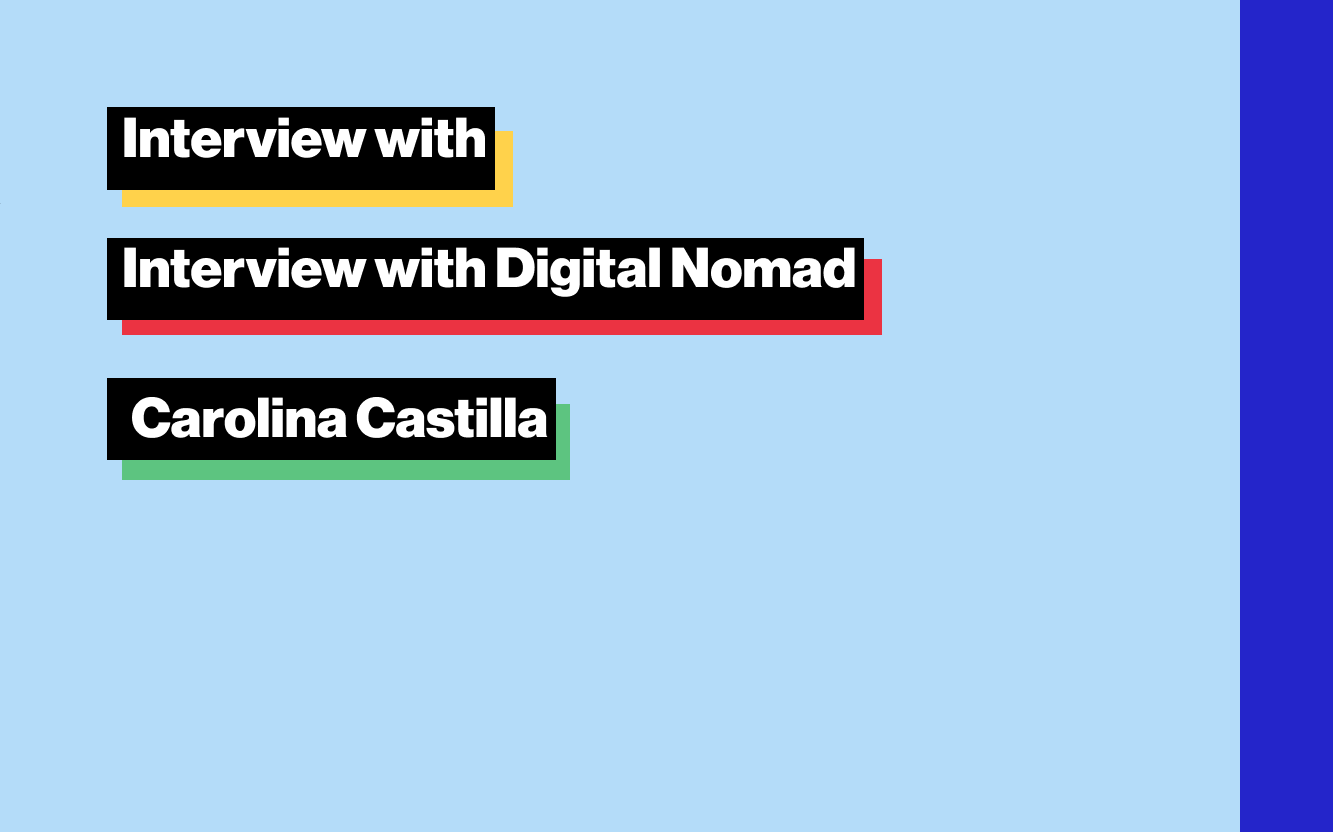
We interviewed Carolina Castilla, who is a startup founder, ecosystem builder, and artist. She participated in the pilot Digital Nomad Program launched by Shibuya Startup Support (SSS) in 2024. She joined us to share what led her to join the program and what it was like to live and work as a digital nomad in Japan.
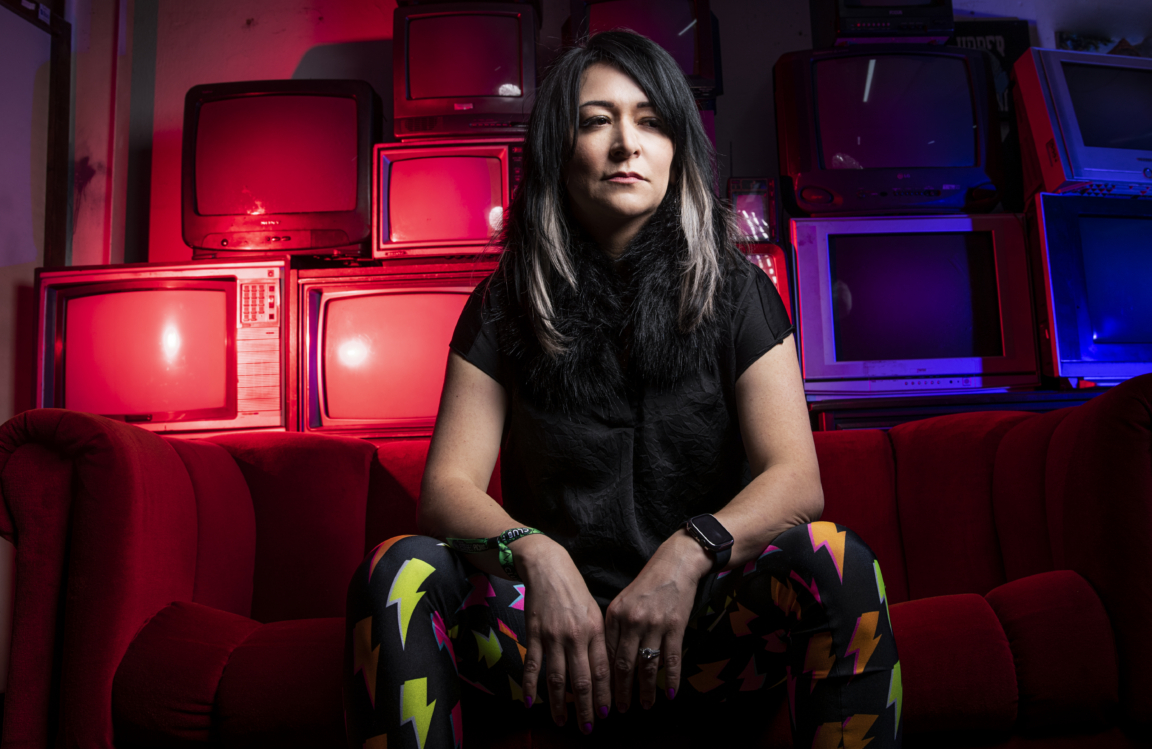
(Photo: Carolina Castilla)
Could you briefly introduce yourself?
My name is Carolina Castilla, also known as Love My Robot.
I’m the founder of Luminarium.io, a global AI accelerator and creative agency that blends entrepreneurship, ethical technology, and digital art. In addition to my work in tech, I’m also an electronic music producer and performer, creating immersive visual and sound experiences that spark conversations about AI ethics and human creativity. My career has taken me across Silicon Valley, Europe, and Latin America, and I’m now expanding my activities into Asia, with upcoming projects in Kyoto and Tokyo.
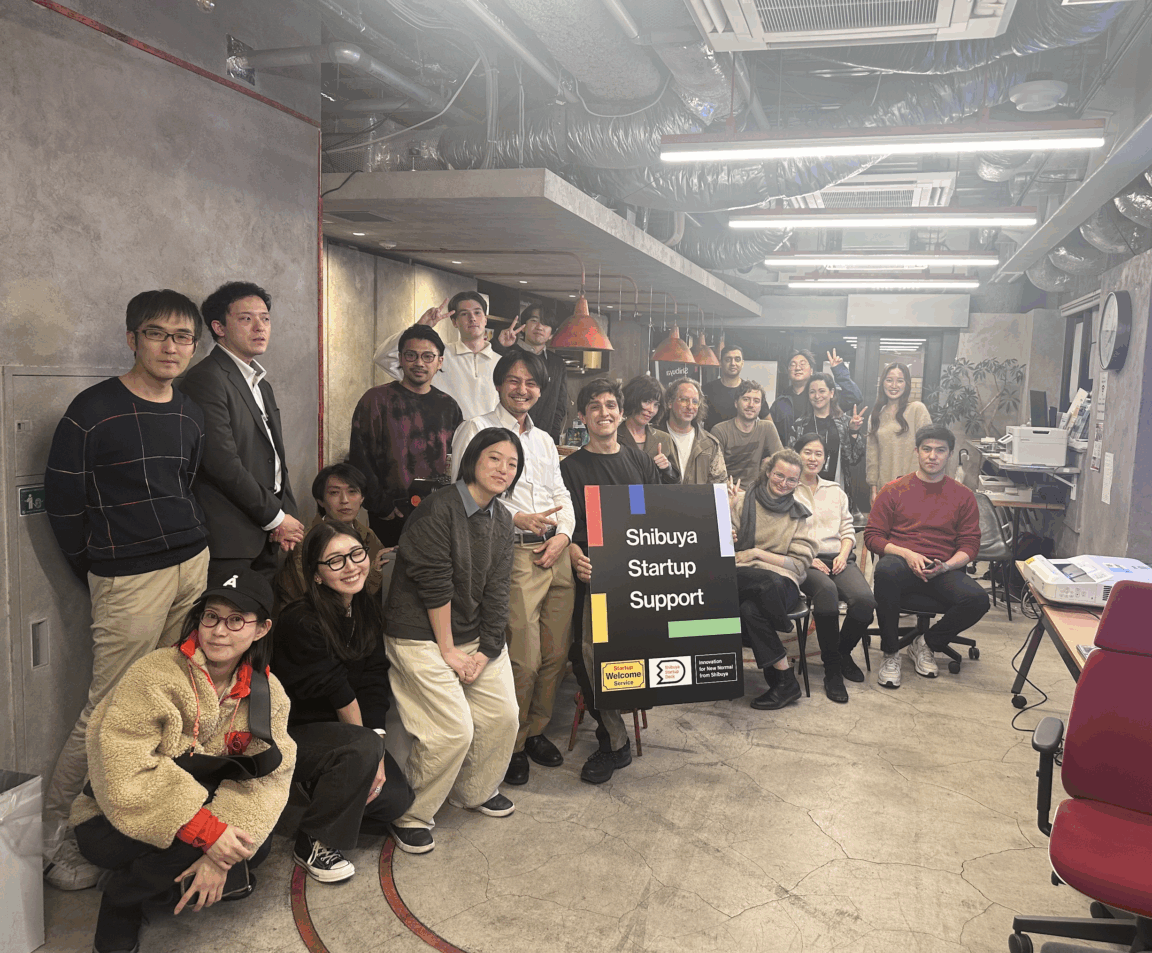
Shibuya Startup Support’s office (Photo: Carolina Castilla)
What inspired you to start working remotely, and what made you decide to join the SSS Digital Nomad Program?
I’ve always had a passion for travel and for discovering new innovation ecosystems. Working remotely gives me the opportunity to bring AI education and awareness to a wide range of cultures. I’m especially motivated to support underrepresented entrepreneurs. That’s why I travel to more developed markets, where I can help create funding and visibility opportunities for startups coming from more challenging environments.
I had visited Japan once before and really liked it. One day, I saw a Japanese startup founder I had met at TechCrunch react to a post about the SSS Digital Nomad Program on LinkedIn. Around that time, my husband was planning a ski trip to Hokkaido. I thought it would be a good opportunity. While he went skiing in Hokkaido, I could stay in Tokyo and expand my network.
Why Shibuya?
I’ve always been drawn to Japan’s unique balance between tradition and innovation. For example, the detailed and intentional approach to design that appears in many aspects of daily life, from architecture and signage to user interfaces and animation. Shibuya especially feels like a place where very classic elements and futuristic ideas exist side by side. I find that contrast both inspiring and educational. Also, I like Japanese characters like Mario, Doraemon, and Pokémon!
What did you do during your time as a digital nomad in Shibuya?
I mostly focused on networking and meeting with many startups and venture capital firms. As a digital nomad, I continued developing my AI-driven platform that helps startups receive funding through advanced evaluation and feedback systems. I engaged with platforms like SSS, where I met Emily, the community manager. I also attended events organized by JETRO and joined pitch sessions and networking meetings with local VCs, especially those interested in AI and blockchain.
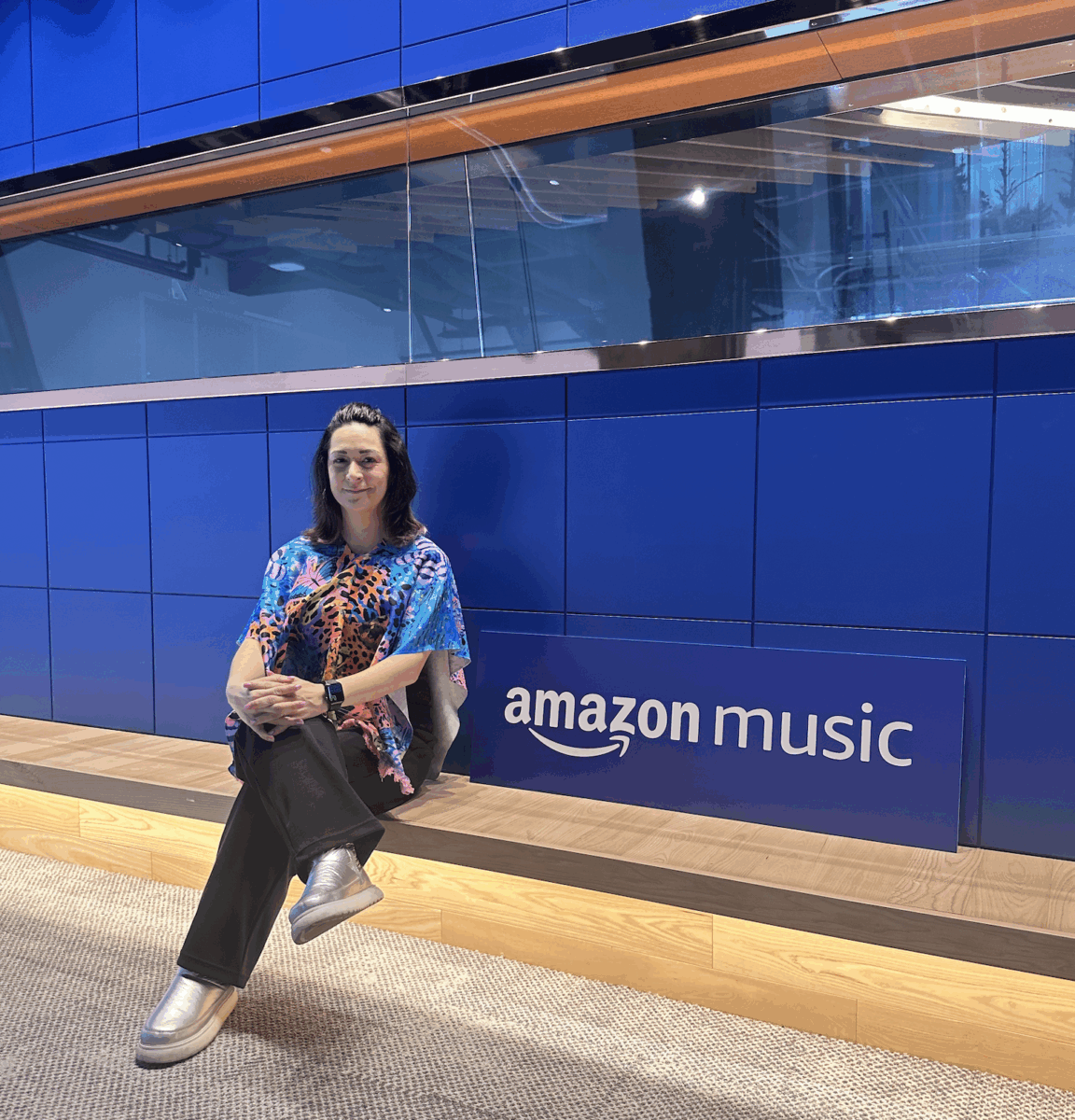
(Photo: Carolina Castilla)
Besides tech, I also continued performing as an electronic music producer and DJ. With support from the SSS team, I was able to find places in Tokyo to perform my music, which I compose myself using drum machines and keyboards. While the visuals are created with AI, the music itself is not AI-generated. I did three concerts in February, including performances at Amazon Music and several bars.
I also gave a keynote in Tokyo on how to raise funding in Silicon Valley and shared insights about the startup ecosystem there. When I mentioned this to startups I met during my stay, some of them started showing me their own products and ideas. That led to a series of private meetings, where I gave feedback on pitch decks and introduced a few of them to potential investors. Through my visits to JETRO and participation in various events, I was able to observe pitches on blockchain and AI, and connect with Japanese VCs. I’m now helping one of the high-level startups I met there to raise funds in Silicon Valley.
Were there any surprises or differences compared to your expectations?
I was especially impressed by the diversity of Tokyo’s startup ecosystem. SSS had many great startups, but what stood out the most to me was how diverse the community was. In startups, diversity is crucial, it drives innovation and excellence. I’ve been part of accelerator co-working spaces in Silicon Valley before, but what SSS has created feels truly unique. There were teams from China, founders from London, France, and the U.S. This kind of international mix is essential for startups to grow and scale. Having a space where global startups can connect, fundraise, and collaborate is a game-changer. It reminded me exactly of my early days in Silicon Valley a decade ago, where I found similar support that helped me grow.
Can you tell us more specifically what your experience in Silicon Valley was like at that time?
When I first arrived in Silicon Valley, I was in a similar environment with a lot of diversity. I had a contact who worked at Hacker Dojo, a well-known co-working space for hackers and tech entrepreneurs. Meeting him inspired me—I wanted to work in a similar vibrant community. But I also wanted a place with a balance between tech and business. That led me to apply to Founders Floor, an accelerator in San Jose. I spent around five years there. They brought investors every week, hosted regular happy hours, workshops, and pitch tournaments that helped startups thrive. Through that community, I raised funding from five VCs. I also started organizing Friday happy hours, which helped me build relationships, keep pitching, and grow my company steadily.
Any advice for others who might want to try the digital nomad program?
I would say, really dive into the culture.
Japan is not only a place to work. It is a place where you can observe, absorb, and reflect. I highly recommend taking time to notice what is happening around you, rather than just focusing on your tasks. There is a lot to learn from Japanese culture, especially in areas like UX and UI design. Even everyday elements such as train stations, caution signs, and public notices are created with thoughtful design and charming illustrations. You can see attention to detail everywhere.
Simply being present and observing can offer meaningful insights. And when you find something interesting, try applying it to your own business. Since I joined the SSS digital nomad program, I feel that the protocols of my own service have evolved, influenced by the lessons I picked up in Tokyo.
Do you have any tips for spending time efficiently in Tokyo for business?
Before arriving, I watched a lot of YouTube videos and read blogs to prepare. That helped a lot. Once I was here, I made the most of the digital nomad program by focusing on the meetings and introductions they provided. All I had to do was follow up and network. When it comes to helping startups with fundraising, it’s all about building real relationships. One meeting can lead to another. I often met people through LinkedIn, and from there, they introduced me to even more contacts. Some of the best meetings even happened over dinner. Those casual settings helped build deeper connections.
If you have any, could you share your future plans or challenges you’d like to take on in Japan?
In Tokyo, I’ll be traveling with a curated delegation of top startups and investors from Latin America. Our goal is to foster meaningful connections between the Latin American and Japanese startup ecosystems.
Looking ahead to September, we’re hosting the world’s largest AI startup competition in Silicon Valley. We’re actively inviting Japanese startups to join us, pitch their ideas, and connect with international investors through this platform.
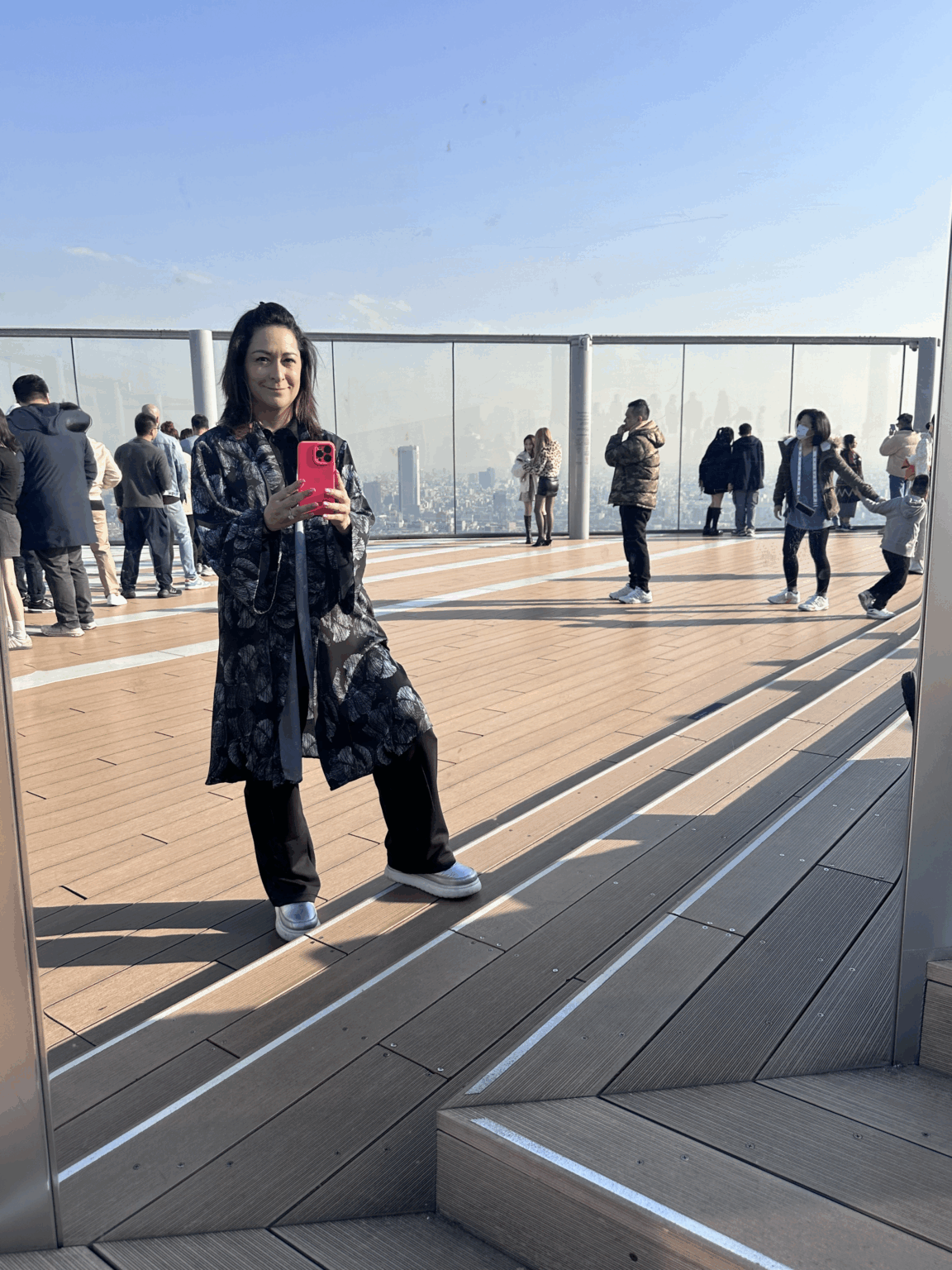
Photo at Shibuya Sky (Photo: Carolina Castilla)
Any recommendations for places to visit or food to try?
Of course, you should definitely try ramen while you’re here. I also recommend visiting Shibuya Sky, the observation deck right by Shibuya Station, where the view is incredible. One of my favorite bars is Oiran Shibuya, which is known for its creative cocktails and has been named one of the best bars in the world. As for food, I also recommend tonkatsu and edamame – simple but delicious.
Carolina, thank you so much for the interview!
The next edition of the program is scheduled for September 2025. We’ll be sharing more updates about the Digital Nomad Program on the SSS website and social media channels, so stay tuned if you’re interested in joining or learning more.
More information on Shibuya’s Startup Visa program: https://shibuya-startup-support.jp/sws/
Shibuya Startup Support’s social media accounts:
LinkedIn:https://www.linkedin.com/company/shibuya-startup-support/
Facebook:https://www.facebook.com/shibuya.startup.support
X (formerly Twitter):https://twitter.com/ShibuyaStartup